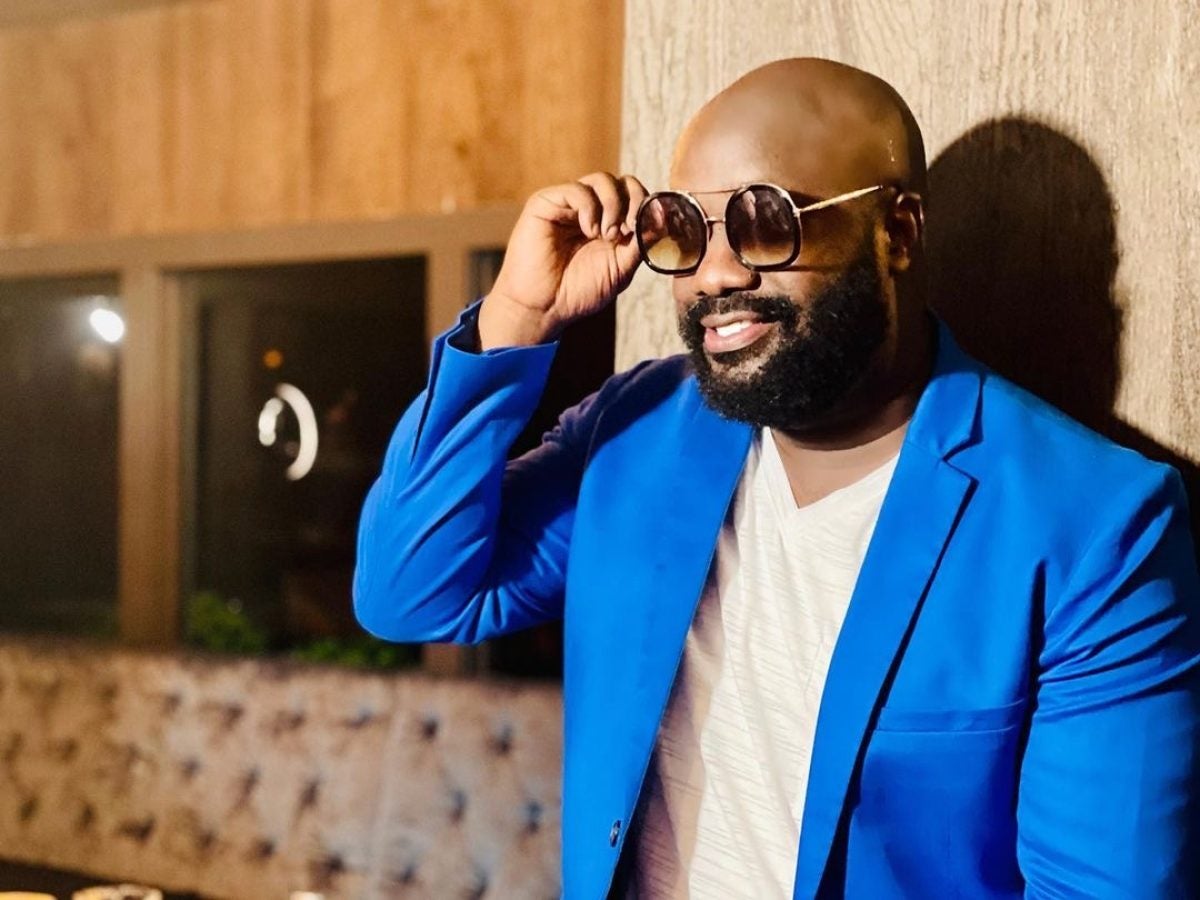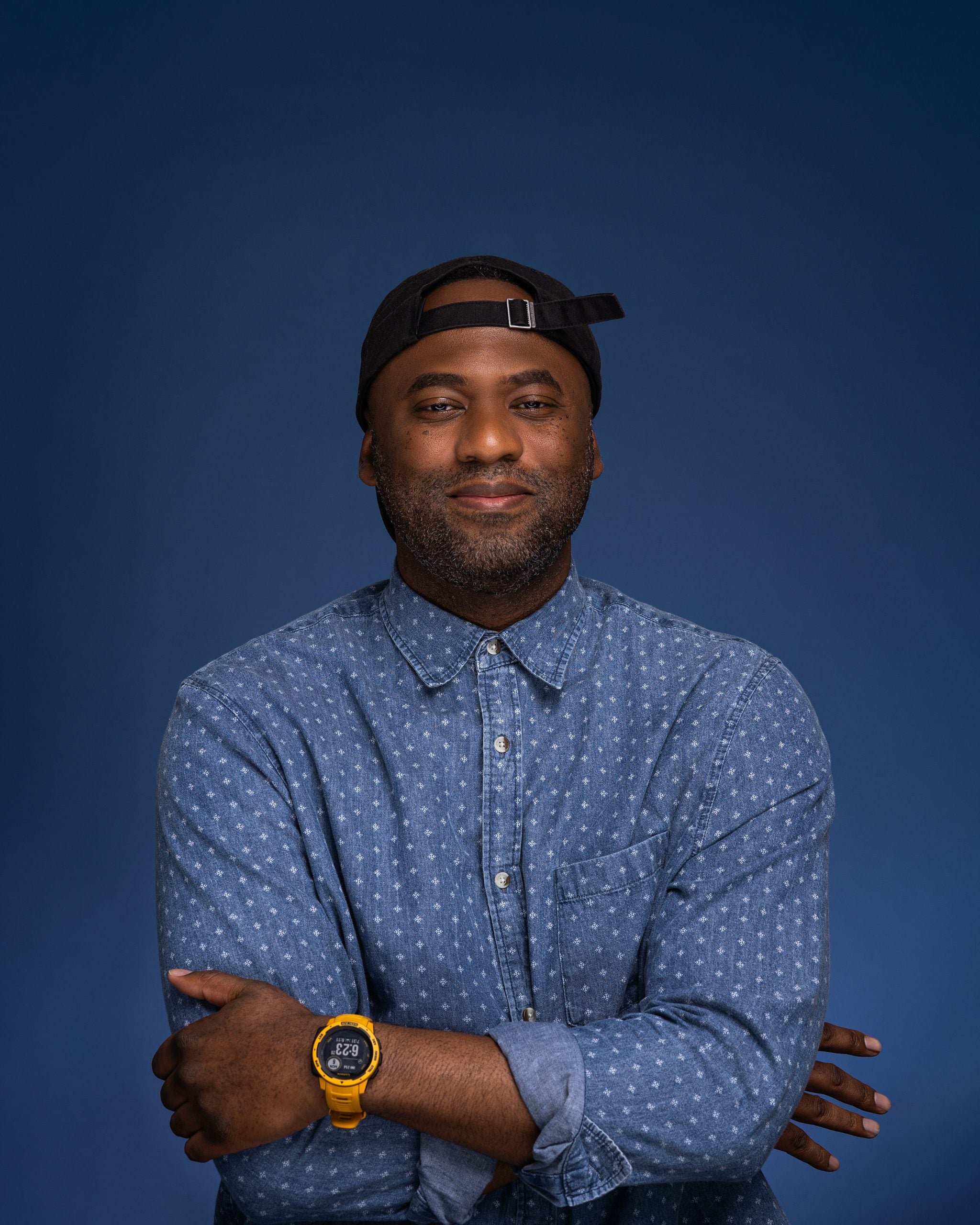
Sometimes the best partnerships are born out of happenstance.
Corey Dennard is a chart-topping producer and Southeast Atlanta native who grew up in the same neighborhood with guys the world would come to know as Gucci Mane and the Ying Yang Twins. Known in the industry as “Mr. Hanky,” Dennard has produced hits for artists including Nicki Minaj, Jeezy, Gucci Mane, Yo Gotti, and Young Dolph.
Michael Hawthorne Jr. is an environmentalist and climate justice advocate with a range of experience creating political and Clean Energy campaigns for the Obama ’08 Campaign, Al Gore’s Repower America, Greenpeace, and the Beyond Coal Campaign with Sierra Club. Growing up in Greenville, South Carolina, Hawthorne’s love of nature was honed from an early age. “I was always exploring in the woods, out at ponds, taking in all the scenery. I’ve just always had an affinity for the outdoors,” he said.

United by a shared love for community and a drive for environmental justice, the hitmaker and the environmentalist joined forces for a big cause. “Climate injustice and social injustice are two sides of the same coin,” Hawthorne told ESSENCE. “We have to fight both.” The two founded Klean Energy Kulture to do just that.
I spoke with Dennard and Hawthorne, who shared the story behind their unlikely partnership. They also discussed how environmental injustice is killing Black Americans and what they plan to do about it.
An unlikely partnership.
Before meeting Hawthorne, Dennard says environmental issues never crossed his radar. But a chance conversation between the two would pique his interest and ultimately a clean energy campaign to rebrand sustainability for Black communities.
“Funny story. Michael had an artist that he really believed in, and one day we were talking about this guy, and—you know, a lot of the artists that I deal with have managers or backers who are athletes, some of them are street guys, but Mike didn’t fit the profile. So, I asked him, what do you do? When he told me he was an environmentalist, I was intrigued. He didn’t fit the bill of an industry dude, but I wasn’t expecting a Black environmentalist either,” he said.
Hawthorne would continue explaining to Denmark how environmental injustice disproportionately impacts Black communities.”He just started laying it out. Like the energy burden, which I had no idea about—how utilities cost way more in our communities and how that contributes to the cycle of poverty. How most industrial plants and high carbon are pumped into our communities,” Dennard recalled.

As an Atlantean and graduate of Southern University in Baton Rouge, Louisiana, Dennard quickly connected the dots. “If you look at our HBCUs, most of them are by plants and factories. Where I grew up in Southeast Atlanta, there used to be a whole landfill. And the more I thought about it, the more I saw the connections to a lot of us getting cancer and all kinds of chronic diseases. So I said, how can I help? How can I get involved?” he said. And the rest is history.
Environmental injustice is killing Black Americans.
No one is immune from the ramifications of climate change, but pollution is killing Black Americans at higher rates than any other community. We are 75% more likely to live adjacent to pollution-emitting industrial plants than any other group—a massive disparity considering they make up less than 14% of the total US population. In addition, the majority of hazardous waste dumping sites in the US are zoned in low-income communities of color.
If Flint and Jackson taught us anything, race and socio-economics play a huge role in which communities are targeted for environmental inequities. Black communities are more likely than any other to be affected by contaminated water systems and exposure to harmful chemicals from poorly maintained housing. “Environmental inequities like these put Black communities at the highest risk for death from power plants’ fine particle pollution,” Hawthorne said.
Hawthorne is well-versed in the ways environmental inequities affect Black communities. For him, the work of environmental advocacy is personal. “What really kind of propelled me was when my uncle in Flatbush, New York, passed away suddenly from an asthma attack. We didn’t even know he had asthma. It didn’t run in the family,” he said. “And so he had an asthma attack, and the ambulance couldn’t get to him in time. And it made me think for a second, like, wow, we’re dying because of air. That’s crazy to me.”
De-gentrifying sustainability.
For decades environmentalists have warned of the damaging effects of greenhouse gas emissions, but scientific validation is no longer necessary. We’re living with the day-to-day evidence of global warming in natural disasters, weather fluctuations, and extreme temperature shifts.
“I’m in Atlanta right now. I’m wearing a hoodie, but it’s 80 degrees in the wintertime. And then it gets down to 30 and 20 degrees at night,” Dennard said, fresh off a flight from The Grammys. “That’s not normal.” Unfortunately, climate change is fast becoming the new normal, especially in Black communities.
Messaging around sustainability has woefully missed its most vital audience. As a result, black communities who suffer most from the compound effects of climate change benefit the least from the lucrative opportunities to solve it. Dennard and Hawthorne aim to change that. The two launched Klean Energy Kulture to de-gentrify the messaging around sustainability and better inform and mobilize Black communities about the clean energy economy.
The goal is to leverage music and entertainment to position clean energy as a lifestyle brand, making it a way of life that becomes real in Black people’s lives and not just a talking point. “It requires real talk, not stiff pitches. The same approach that worked with me,” Dennard said.
Creating a Klean Energy Kulture.
In an era of rampant climate change, clean air and water is the new flex. Dennard, a music insider with industry connections, and Hawthorne, an environmentalist with political friends, combined superpowers to create Klean Energy Kulture. As co-founders of the initiative, the two formulated a strategy to build power through campaigns that target crucial utility planning moments and policies that lead to an equitable transition from coal and gas plants to renewable energy generation while creating a clean economy.
Their three-pronged strategy uses music, entertainment, and social media to connect the dots of why it matters; it leverages key brands and influencers to influence utilities to adopt more clean energy; and creates campaigns to achieve regulatory wins by intervening in Federal and State policies while electing Pro-Clean Energy Elected Officials who advocate for policies that achieve a clean grid and a Green Economy.
For Dennard, the aim is simple. “We run the culture. In my industry, we control American culture. So my thought is, Man, if we can wake people up, we can change the whole trajectory of everything. This has the potential to make a big difference in our community,” Dennard said.